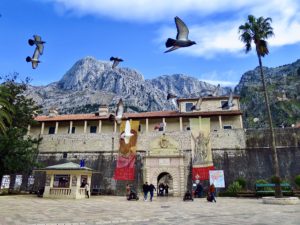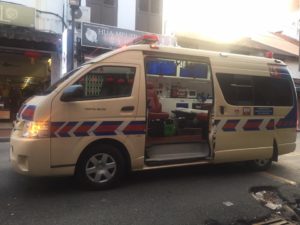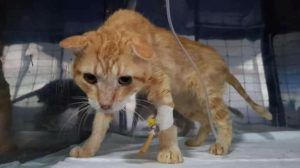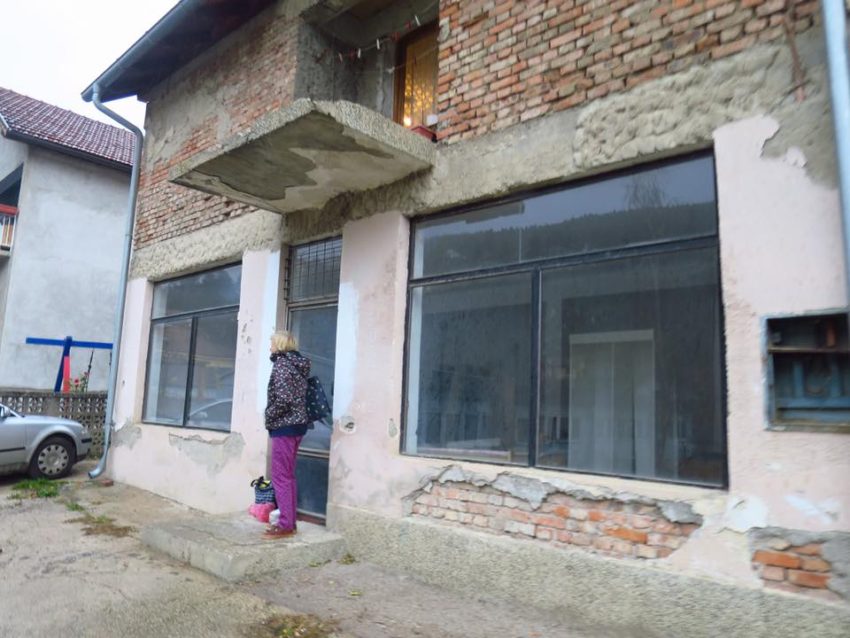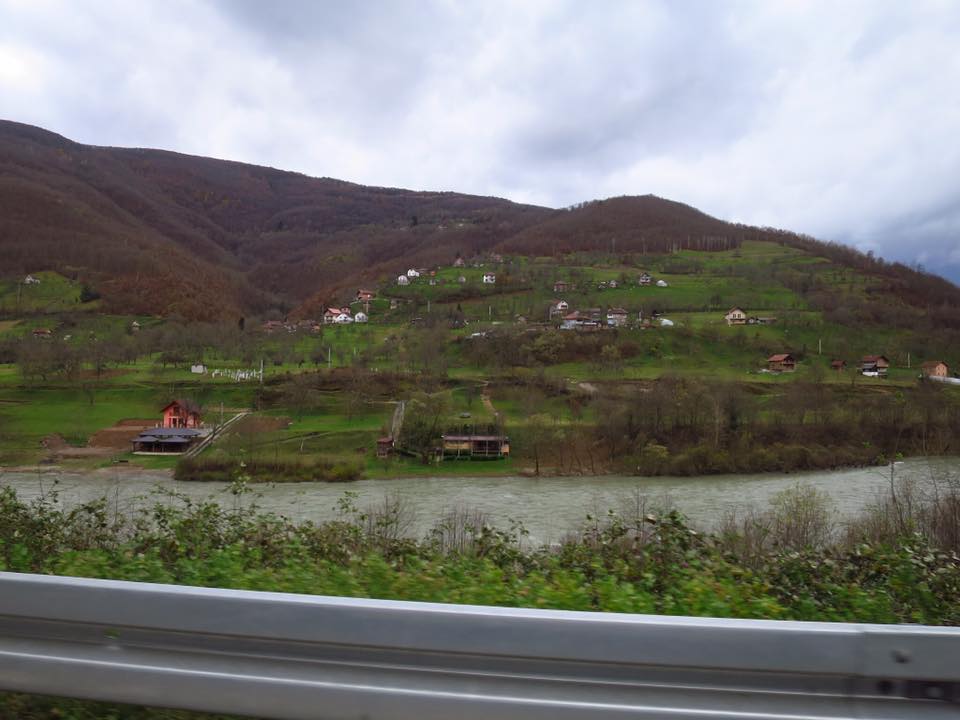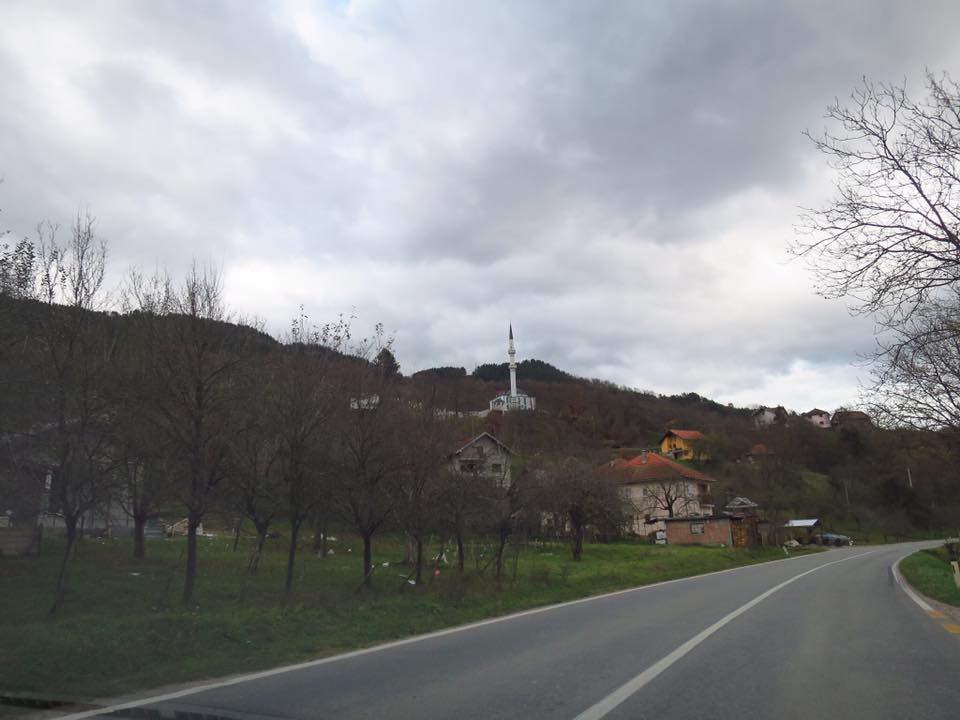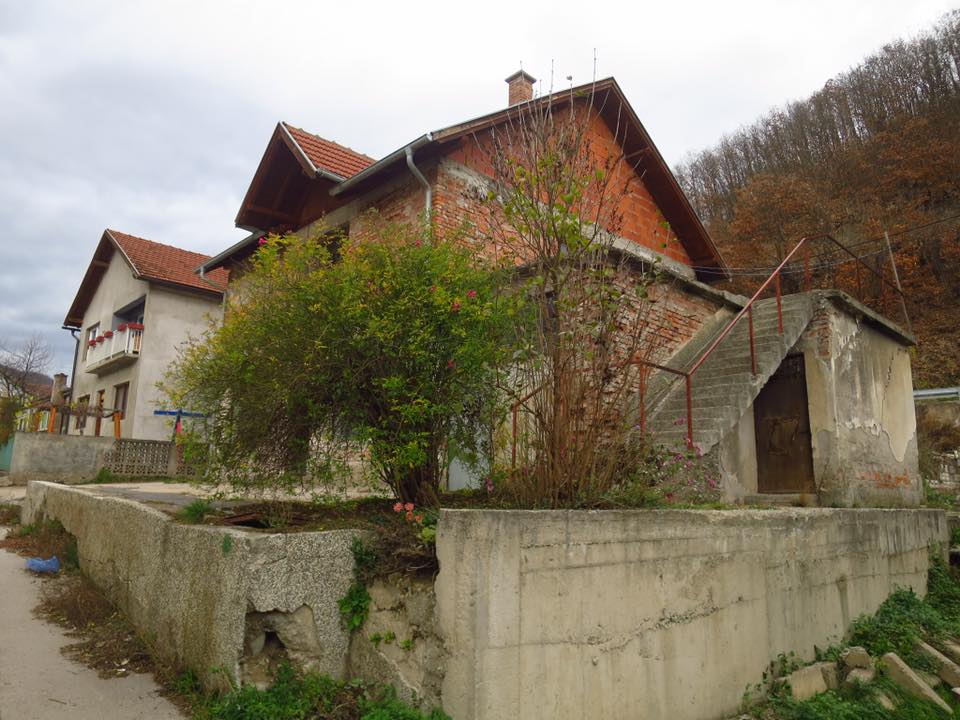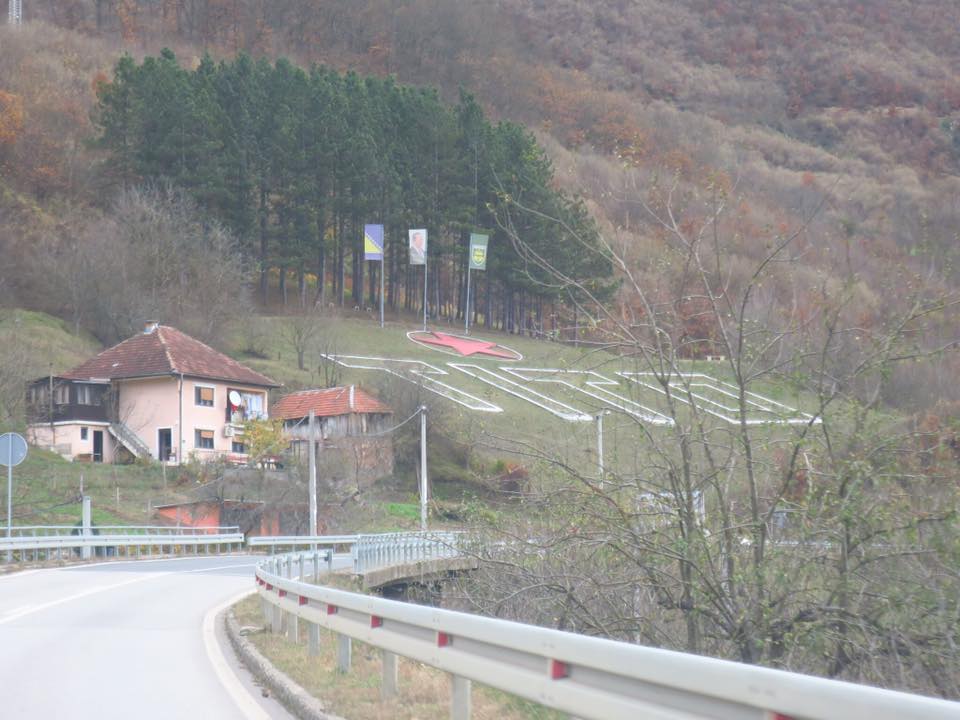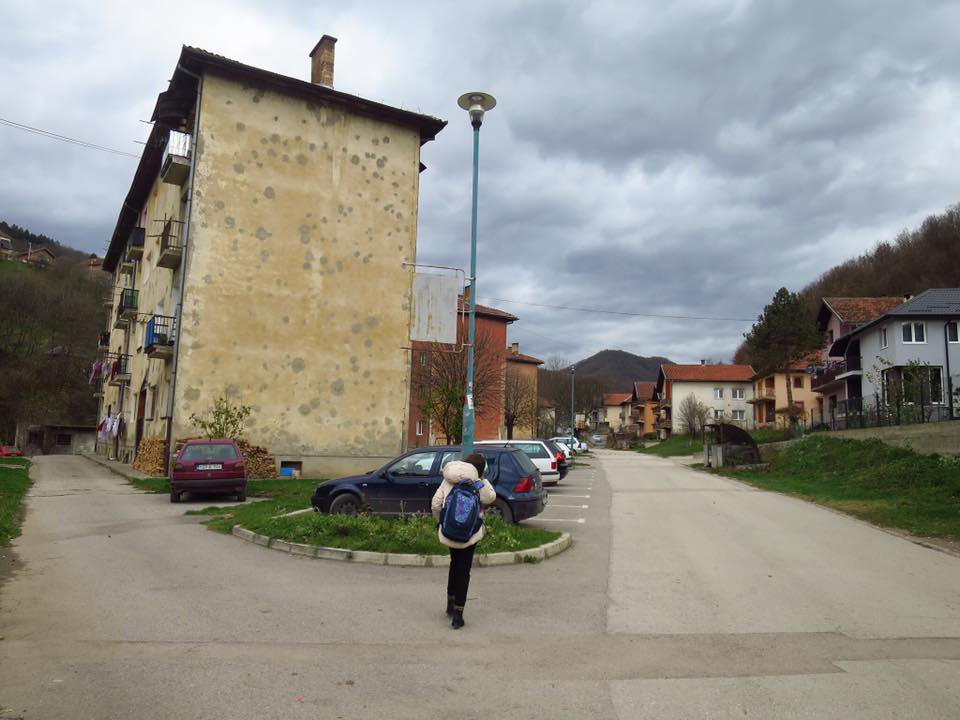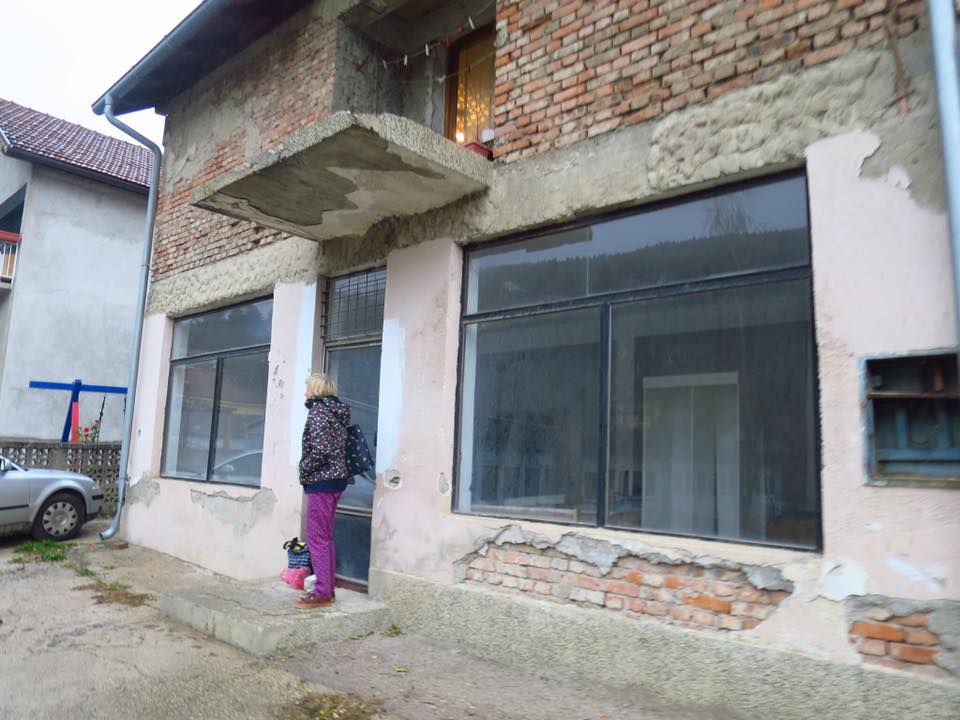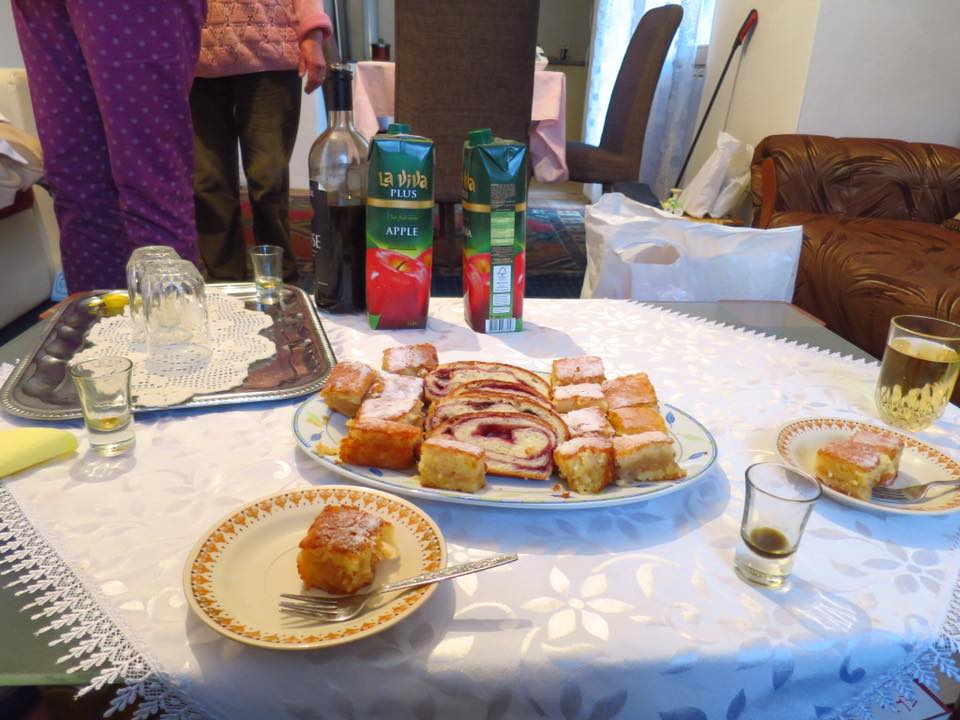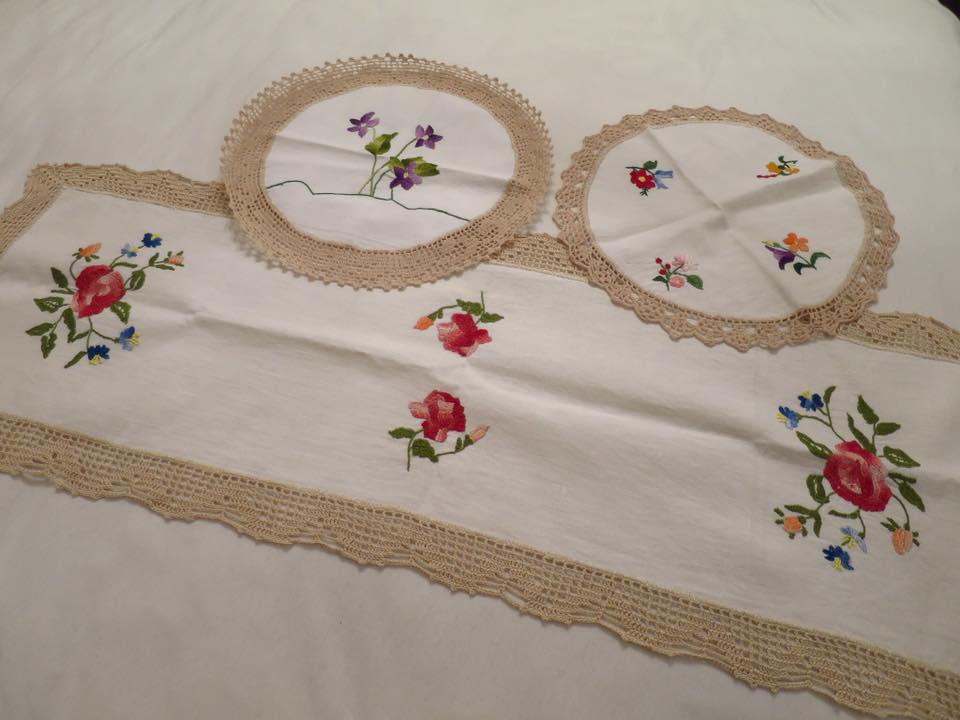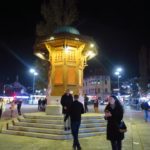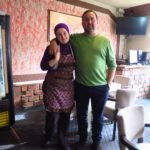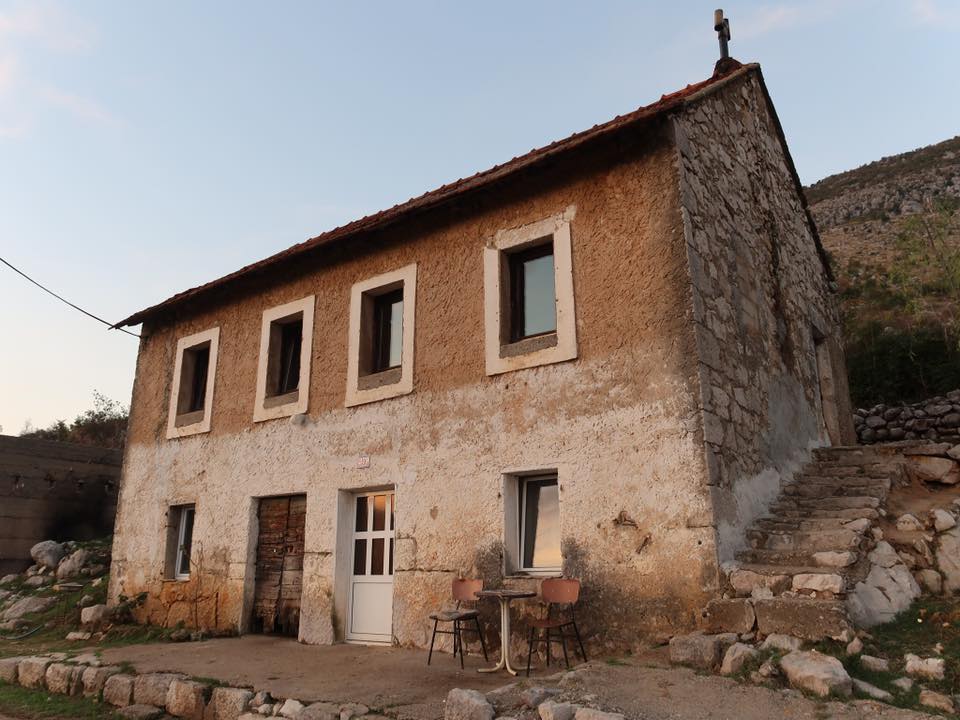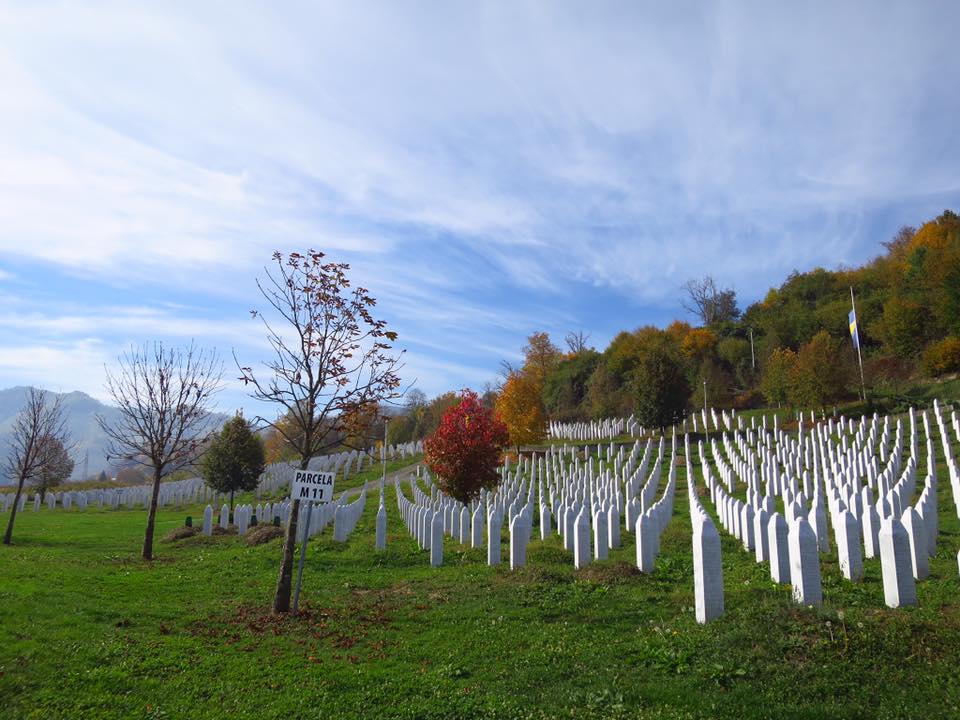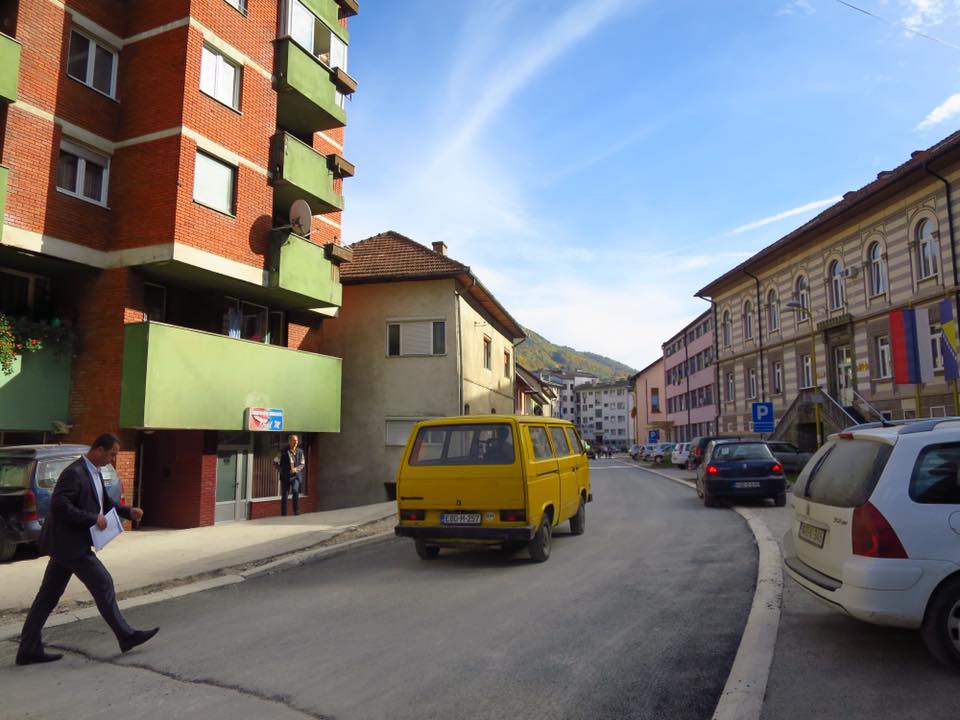On our third visit to Sarajevo in November, 2019, we noticed a lot more refugees in the city. Still recovering from the civil war (1992 – 1995), Bosnia and Herzegovina is definitely not equipped to handle the influx of refugees. Kenric and I knew we should to do our part for our beloved city. At our request, Arna (our former tour guide, now friend) gave us a list of organizations that ranged from public kitchens to electronics recycling centers that could use some help.
I wrote about our visit to one of the places on the list – Dobre Volje in Travnik – a restaurant that serves free hot meals to anyone hungry. It’s run by the couple, Adisa and Amir, who closed their restaurant and converted the space to serve the hungry. Partnering with pomozi.ba, Dobre Volje receives donations of money and food items, and this selfless couple makes them into delicious meals for dine-in, take-out or delivery.
Also on Arna’s list was an individual. She said the lady is a war returnee and could definitely use some help. Kenric and I always prefer to assist individuals directly rather than going through big organizations. We asked Arna to call the lady to see what her most immediate needs were. The lady, Biserka, was very happy to hear from Arna, but she couldn’t (or wouldn’t) tell Arna what she needed. Arna told her to think about it and said that she would call back the following day.
We told Arna that whatever Biserka needed that we could afford, we would either purchase and have her deliver whenever she has a tour out that way, or give her cash to pass to Biserka to make the purchase on her own. When Arna told her about the arrangement the following day, Biserka said she would rather have a visit with us instead of just receiving gifts or money from us without ever meeting us.
On the one hand, Kenric and I felt awkward about visiting Biserka at her home because one, we didn’t want to treat her home like it’s a tourist attraction that we go “see”; two, it’s almost like we were setting up a situation where she had to say “Thank you” to us; three, the money for a rental car would be better spent just given to her; and four, Arna would have to take a day off from work. On the other hand, we found out that Arna had not visited her for about three years, and she would make a long day trip of out it to include Foca and Visegrad. A few days later, the three of us headed east.
The former Yugoslavia was made up of six different republics. Bosnia and Herzegovina was one of them. The others were Croatia, Macedonia (now North Macedonia), Montenegro, Serbia and Slovenia. When Yugoslavia was fracturing, Slovenia and Croatia were the firsts to declare independence. In 1992, Bosnia and Herzegovina held a referendum and based on the results, declared independence on March 3rd, 1992.
The total population of Bosnia and Herzegovina in 1991 was 4.38 million distributed as follows:
44% Bosniaks (Muslim)
31% Serbs (Orthodox Christians)
17% Croats (Catholic)
8% Yugoslavs and “Others”
The Serbs either boycotted the referendum, or were prevented from voting because their leaders preferred to join with Serbia and Montenegro which had formed a new Yugoslav federation. By then, the Bosnian Serbs had declared themselves an independent Republika Srpska. On April 5th, 1992, the Army of Republika Srpska laid siege on Sarajevo. The civil war that soon engulfed the country would drag on until December 1995 when The Dayton Accords peace agreement was signed.
Except for some deniers, it is global consensus that the Serbs were the aggressors. Ratko Mladić, an army general known as the “Butcher of Bosnia”, was finally convicted by the International Criminal Tribunal in The Hague, The Netherlands in 2017 of genocide and crimes against humanity, among other war crimes.
Today, the country of Bosnia and Herzegovina has two different political entities as recognized under the peace agreement – The Federation of Bosnia and Herzegovina, and Republika Srpska. The population of the country in 2020 is down to 3.28 million.
The city of Goražde is about two hours east of Sarajevo. In 1991, it had a population of 37,505 (70% Bosniaks; 26% Serbs). The Republika Srpska army was especially brutal with its attacks on predominantly Bosniak towns such as Srebrenica and Goražde. Bosniaks were forced from their homes which were often taken over by Serbs.
In 2013, Goražde’s population was down to 20,897, but the composition had changed to 94% Bosniaks and only 3% Serbs. My guess is the Serbs moved away because Goražde is under the jurisdiction of the Federation, or in other words, the Serbs moved to a Republika Srpska area. The 3 percent Serbs translated to 707 people. Biserka was one of them.
Being a Serb, Biserka fled to neighboring Serbia and was granted refugee status. She was in her fifties. Her husband of 30 years had passed away before the war. They had no children. When she was a little girl, her family lived as refugees too during the Second World War. She lived in Serbia as a refugee until her return to Goražde in 2009.
At that time, Arna was working with a non-profit that was involved in resettling war returnees. There were many who applied for assistance to rebuild their homes. Biserka was one of the very few lucky ones. An ethnic Serb’s decision to return to a now almost-exclusively Bosniak town, and being granted assistance to rebuild her home raised some eyebrows. But, Biserka was a victim of the war too, and Goražde was her home and it’s where her husband is buried.
After living with her friend for some time, in 2011, at age 73, Biserka finally moved into her United Nations High Commissioner for Refugees (UNHCR) rebuilt home furnished with two beds, a table and a stove. Arna and her colleagues spent a lot of time outside their work hours calling and writing letters to businesses asking for in-kind donations. Every once in a while, they were able to secure a new or used sofa or coffee table to furnish the UNHCR homes. Arna’s effort was greatly appreciated by Biserka, and they have stayed in touch all these years.
Arna brought Biserka some pasta and canned food, among other non-perishables. Kenric and I put the cash equivalent of 1.5 months of her meager government pension into a small cardboard box my painkillers came in. The countryside was beautiful and tranquil that fall morning. I almost didn’t want to think about the men who were lined up, shot and fell into their mass graves; the women who were raped while screaming to no avail for help; or the people who were hiding in the forest so hungry and cold they hallucinated or died.
Arna pointed out a small village where Angelina Jolie had visited. The locals loved her. She was kind and was deeply moved by their stories. Jolie is an honorary citizen of Sarajevo; awarded in recognition of her film about the war In the Land of Blood and Honey. We drove past a big sign on the hillside that spelled “TITO”. Maybe he really was the benevolent dictator some claimed. Arna pointed out the factory where the manager donated some furniture for the rebuilt homes years ago.
We parked much further away than we should have, but that gave me a chance to feed some cats digging through the dumpsters. Most buildings had grey irregular circles on them; pockmarks left by mortar shells filled in with cement. It was a Wednesday. A little girl was walking home from school. Arna pointed out Biserka’s home. It was not what I expected a UNHCR-sponsored home to be. The bricks were left exposed.
Biserka’s friend came down to greet us. She was very nice and invited us upstairs. The downstairs area was intended to be a community meeting space, but remains vacant. The exterior stairs had a handrail, but the landing that serves as the outdoor space outside the front door, and the balcony had no railing at all. The friend told us that we didn’t have to take our shoes off, but we insisted.
Biserka was happy to see us, especially Arna. She was laying on the couch. We were all surprised to learn that she had been bedridden for a few weeks. She had suffered a fall while feeding a dog somewhere behind the house. Why do bad things always have to happen to good people who are helping animals?
We sat on a separate couch and her friend served us juice, and cakes. I was glad to see that the interior of the home was much better than the exterior. The apple cake was moist and delicious. Biserka said it was the best in town. Then, came the rakia; a fruit brandy. Biserka reminded Arna that she had not visited for more than seven years, not three as Arna thought. The last time Arna was there was when the dining chairs she solicited through her calling effort were delivered.
We were invited to look through the two small photos albums on the coffee table. There were many photos of Biserka and her husband at restaurants, at home, at cafes, on vacation. One in particular stood out. They were in front of their yellow Mercedes. He was a handsome man. Her shoulder-length big curls and the big ruffles of her red top showed off her beautiful neckline. She was young and vivacious, and there was kindness in her face. I tried my best to not cry.
They asked about Kenric and me, and about our families. She and her husband used to own a factory that made plastic jars and containers for cosmetics and creams.
A relative of hers came. She’s probably in her early 30s and is a lawyer in town. She and Arna talked about the local economy and development efforts. Arna translated what everyone said for us, but this relative understood English.
The rain had let up and we were slowly getting ready to go. Biserka had prepared a bottle of homemade rakia and a big jar of apricot preserves for us. It would be rude to refuse so we accepted them. I told them those were things that Kenric would really enjoy. Arna translated. Biserka asked her friend to go get something from her room. Probably not wanting me to feel left out, Biserka wanted me to have a set of table runners. I tried to turn it down, but she insisted that I should have them. I liked them even more after learning that she made them herself. She said she used to make much more elaborate embroidery pieces in her younger days. My heart ached for her.
Up until then, I had discreetly taken only one photo inside her home, of the cakes and juice. While I would have liked to have a photo of Biserka, I didn’t want to capture her in her weakest-of-the-weak moment. She surprised me when she asked us to pose behind her for a photo. I was sad to leave and wished Kenric and I lived close to these two eighty-something-year-old ladies so that we could bring them some food whenever we cook, and help them out with things. I really liked them.
When I hugged Biserka goodbye, I put the little painkiller box in her hand. She nodded appreciatively and said “Thank you”. I shook my head and smiled. While the others were busy chatting earlier, Kenric and I dug through his wallet. Too bad we had only about half a month’s worth of their pension in cash. We gave it to her friend. She was surprised and touched. I nodded and smiled. We waved goodbye many times.
Two days later, Biserka called Arna to thank her. She said her friend thanked her too because she received some money as well. She said the people that were supposed to drive her to the hospital for physical therapy the day after our visit did not show up.
Kenric enjoyed the apricot preserves much more than he did the rakia. I know, surprising. Biserka called Arna around New Year’s, and said she looked forward to having us over for lunch. Kenric said he’ll be there if Biserka would give him more apricot preserves. With the borders all locked down now, we really don’t know when we can go back.
I was not going to write about Biserka because it is hard to not come across as boasting. We didn’t tell anyone about her. When I received Arna’s text two days ago that started with “Biserka”, I feared the worst. But, it was rather good news. In the five months since we met her, her physical therapy has produced some results. She can now stand up and walk a little. She again extended her invitation for us to join her for lunch.
My feelings on homelessness and the refugee crisis have always been “It could happen to any of us in a blink of an eye”. It’s true. Biserka’s fate can befall anyone born into the wrong parts of the world. But very few of us can be as resilient as Biserka, or Arna, a Bosniak, working tirelessly to help everyone rebuild his or her life, and that’s why I owe them this story.
